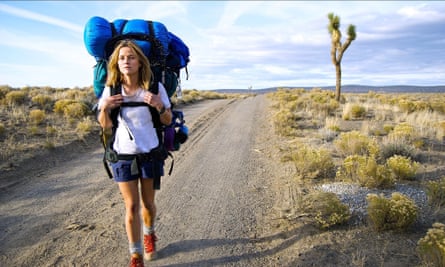Women around the world have spoken out about their experiences of travelling after two young Argentinian women, María Coni and Marina Menegazzo, were killed while backpacking in Ecuador. In the wake of their deaths, online commenters seemed to blame the women for what had happened, asking why they were “travelling alone”.
But, as Paraguayan student Guadalupe Acosta pointed out in a Facebook post that has been shared more than 730,000 times, there is an enormous double standard in asking questions like this of female travellers. It’s the equivalent of asking women who have been subjected to unwanted sexual attention or violence what they were wearing, instead of focussing on the wrongdoing of the male perpetrators.
In response to the furore, the phrase #viajosola (I travel alone) trended on Twitter, with more than 5,000 women using the hashtag to discuss their experiences. One woman poignantly wrote: “Travelling is freedom. Freedom has no gender.” Another wrote: “I want to … travel alone without the fear I’ll be punished for it.” Another said: “For women to stop travelling alone would be admitting we are to blame and have to be careful, when it is the world that has to change.”
Many people also rightly pointed out the irony of criticising the two women when they were, in fact, travelling together. To suggest that women shouldn’t travel even with female friends takes victim-blaming a step further still – implying that women shouldn’t stray from home at all without male chaperones.
The truth is, women do experience a large amount of harassment and abuse while travelling alone, but they also experience danger in their local communities. To suggest that any woman shouldn’t travel alone is illogical when no country has successfully tackled, and stopped, gender inequality and sexual violence.
The tragic case of the two backpackers, 22-year-old Coni and 21-year-old Menegazzo, is by no means the first of its kind. When 33-year old New Yorker Sarai Sierra was killed in Turkey during her first trip abroad, online commenters questioned her common sense and asked why she was travelling without a male companion.
But Sierra’s case (the man convicted of murdering her said the attack began after she rebuffed his attempt to kiss her), was strikingly similar to that of Mary Spears, for instance, shot and killed in Detroit in 2014 having rebuffed a man’s advances, and to that of another woman who had her throat slashed by a man in New York (but fortunately survived) after she turned down the offer of a date.

The exact same fate might just as easily have befallen Sierra at home, but it didn’t protect her from judgments and criticisms of her decision to travel. In this sense, there is also an element of racist stereotyping in our readiness to condemn crimes against women that happen abroad as representative of wider violent attitudes towards women. Meanwhile, we fail to make the same generalisations about attacks that happen at home.
To put things in perspective, according to the Foreign and Commonwealth Office (FCO), in 2013-14 there were 106 reported rapes of British nationals abroad and 152 reported sexual assaults. The Overview of Sexual Offending in England and Wales, released by the Ministry of Justice, Home Office and Office for National Statistics in 2013, revealed that 85,000 women are raped in England and Wales every year, of whom around 15% report the incident to police. In the same way that confining women to women-only carriages on trains doesn’t solve the problem of harassment, but restricts women’s movements while tacitly condoning perpetrator actions, the same could be said about telling women to solve the problem of harassment and violence by staying at home. It unfairly curtails women’s freedom, and suggests that violence against them is simply inevitable.
Yet the restriction of women’s solo travel remains a curiously acceptable form of victim-blaming. When Sierra was killed, for example, one headline read: “American’s death in Turkey puts focus on solo travel”. Compare this with a headline about the death of Harry Devert, a 32-year-old US citizen killed while travelling alone in Mexico: “The untimely death of world traveler Harry Devert.” When Australian Lee Hudswell died after an accident while tubing down a river in Laos, the press reported: “Fatal end to Lee’s overseas adventure”.
Female travellers have long been subjected to restrictions and double standards, with their gender emphasised over their capability and strength. Female travellers are much more likely to be categorised into reductive stereotypes – such as the glamorous adventuress – than their male counterparts. Think HG Wells in ‘Warehouse 13’, sexy Lara Croft, or the film portrayal of Adèle Blanc-Sec versus that of Tintin. When men travel in films, they are usually just travelling, but when women do, they are often running away from (or towards) a male romantic partner. (Compare The Holiday, Wild, Under the Tuscan Sun, Eat Pray Love, to The Motorcycle Diaries or Into the Wild.) There are, of course, welcome exceptions (take a bow, Dora the Explorer).
Travel has historically been, and to an extent still is, seen as a natural, bold activity for men, and a risky or frivolous pursuit for women. And as with so many other forms of low-level sexism, the knock-on impact is enormous. At a local level, curtailment of travel can prevent women from accessing healthcare, visiting family or taking job opportunities. When we restrict women’s wider freedom, we also curtail their ability to broaden their horizons and acquire valuable language skills. The impact on women’s careers can be clearly seen in the responses to female journalists who experience assaults while reporting abroad and face not only immense victim-blaming but also the curtailment of foreign assignments as a result.
When CBS correspondent Lara Logan was assaulted in Cairo in 2011 while reporting on the uprising, for example, one Canadian newspaper ran an article entitled: “Women with young kids shouldn’t be in war zones”. The (male) writer asked: “Should women journalists with small children at home be covering violent stories or putting themselves at risk? It’s a form of self-indulgence and abdication of a higher responsibility to family.” Another commentator asked: “Why did this attractive blonde female reporter wander into Tahrir Square last Friday? What was she thinking?”
All travellers should take safety precautions, regardless of age or sex. Nobody is suggesting that women shouldn’t make the same sensible preparations as their male peers. But any attempt to constrain women’s movements solely on the basis of gender not only feeds into the idea that violence against them is inevitable, instead of tackling it, but also ignores the very real threats they face at home.

